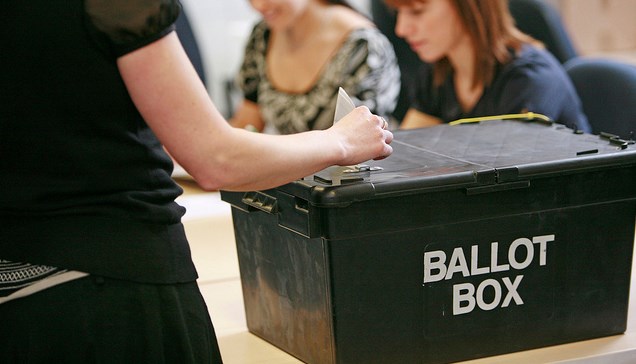
Impact of Voter ID on Local Borough Elections in Reading
- A total of 73 residents did not return to a polling station to vote after initially being turned away for not having an acceptable form of identification
- Impact could potentially be higher as the figure for the number of residents who chose not to vote this year as a result of new Voter ID laws is not known
- 99.7% of residents who attended a polling station on May 4 were able to cast a vote
THE Council has released details on the impact of the Government’s new Voter ID requirement on the recent local borough elections in Reading.
While overall figures show 99.7% of residents who attended a polling station on May 4 in Reading were able to vote, a total of 270 voters were turned away inside polling stations and not issued with a ballot paper after not having a form of identification deemed acceptable under the new rules.
Of those initially turned away, 197 people returned with suitable ID and were issued with a ballot paper and able to vote. A total of 73 residents did not return and consequently did not cast a vote.
The number of people impacted by the new Voter ID requirements could potentially be higher. The collated figures do not include residents who may have chosen not to vote this year as a result of the new Voter ID legislation. The Council has no way of knowing or recording this total.
The Council also positioned staff outside of polling stations to meet and greet voters and help them with any questions, but residents who did not enter the polling station as a result of not having the right identification would not have been recorded.
Comparative Polling Station turnout and overall turnout (which includes postal votes) for the last five local borough elections are as follows.
2023: Polling Station turnout: 25.78% Overall turnout: 32.60%
2022 Polling Station turnout: 28.10% Overall turnout: 34.57%
2021 Polling Station turnout: 29.37% Overall turnout: 35.96%
2020: No Elections due to pandemic
2019 Polling Station turnout: 27.70% Overall turnout: 33.59%
Overall, a total of 95,783 electors in Reading were eligible to vote in this year’s local borough elections. 24,698 electors were issued with a ballot paper at polling stations on May 4 and a further 13,739 cast their votes by post.
Councillor Jason Brock, Reading Council Leader, said:
“The introduction of new Voter ID Legislation has proved controversial nationally, and while the Council did everything in its power to inform and alert local residents of the change, it was inevitable that some residents would be disadvantaged.
“It’s highly disappointing that 73 Reading residents were unable to exercise their democratic right on 4 May, as even one voter excluded is one too many. The reality, of course, is that the figure is likely to be higher, with some residents put off voting this year and choosing to not bother even attending a local polling station as they lacked the necessary ID. Certainly I know that I encountered this on the doorstep.
“The fall in turnout this year – both polling station turnout and overall turnout – may suggest Voter ID had a detrimental impact, but there could be any number of reasons for that. The Council is keen to consider the implications in more detail over the coming weeks and a report will be presented to a committee meeting later this year which will be a good opportunity to debate and discuss the impact with officers, and with Councillors of all political persuasions.
“There is a national debate on the impact of Voter ID currently taking place and the fall out, including any possible future changes to legislation, will be of interest.”

